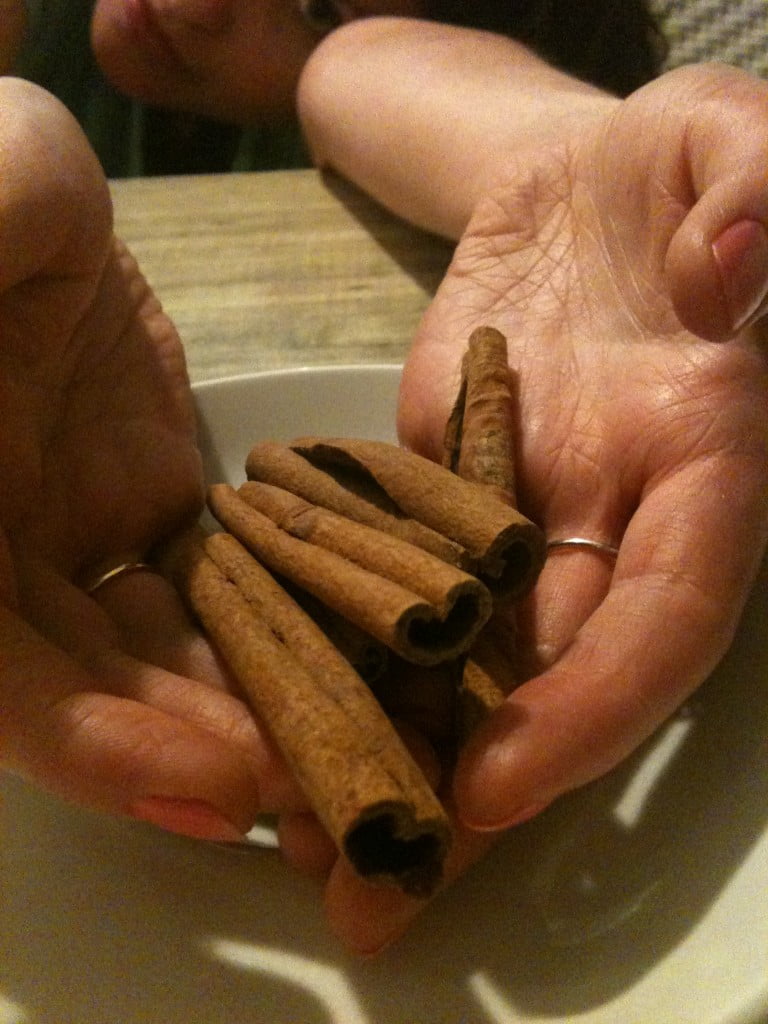Findings following trials on mice and flies by researchers from Tel Aviv University, reveal that an isolated section of the cinnamon plant prevents the development of the disease and may even cure it.
Tel Aviv University researchers, headed by Professor Michael Ovadia from the Zoology Department in the Faculty of Life sciences, were able to isolate a section of the cinnamon plant capable of delaying the development of Alzheimer’s disease.
During research, the material known as CEppt was able to delay Alzheimer’s in laboratory mice bred with a gene that creates toxic amyloid molecules (plaques) which accumulate in the brain as the disease progresses. Several laboratories of the Faculty of Life Sciences were involved in the research. The findings were recently reported in the scientific journal PLoS ONE.
Alzheimer’s, which causes gradual memory loss, is a condition that can be caused by two types of brain processes identified to date: the accumulation of amyloid protein outside of the brain nerve cells and further accumulation of a protein known as tau within the nerve cells. In Israel, it is estimated that 70 thousand people suffer from Alzheimer’s and similar diseases that harm memory.
In a previous discovery, Ovadia discerned that materials in the cinnamon bark may inhibit the activity of coated viruses (e.g. influenza viruses and herpes). Researchers in the first stage of this study, conducted in laboratory test tubes, used an electronic microscope to show that the CEppt material isolated from the cinnamon was able to delay the creation of amyloid molecules. As described in the research, production of the substance entailed the creation of powder from cinnamon sticks by means of a coffee grater. The substance was isolated under laboratory conditions within a solution kept at a temperature of four degrees Celsius until ready for use.
Later, the research expanded to an examination of the material properties on mice and flies in the laboratory. These are flies bred with a gene triggering Alzheimer’s and mice bred with five genetic mutations causing aggressive development of Alzheimer’s disease by the age of two months. Animals consumed the substance in the laboratory when it was mixed in the drinking water. After four months of follow-up, researchers found that mixing cinnamon in the drinking water delayed the development of Alzheimer’s, and the documented animal behavior was similar to healthy animals of their own kind, both in terms of lifespan and in terms of activity.
A test-tube experiment also revealed that the substance helps break down amyloids that have already been created. “The finding points to the possibility that the detected material may not only prevent Alzheimer’s, but also holds healing properties after molecules which lead to Alzheimer’s have been created,” explains Ovadia. This finding necessitates further research on animals.
Ovadia became interested in the qualities cinnamon qualities already in his youth, when he claimed the title of Deputy National Youth Bible Groom, and was asked in one of the Bible trivia questions about the composition of materials in the holy ointment that priests would apply on the alter preceding a sacrifice. “I had a black out. I remembered the composition of materials, including cinnamon, just as the buzzer rang. This question bothered me and I decided to test the properties of cinnamon until I arrived at the current discovery,” says Ovadia, also an expert on snake venom research.
…
To read this story in Hebrew click here
Via http://www.haaretz.co.il
Translation by Maya Ehrmann
Photo by Julie Himmel
Related posts

Israeli Medical Technologies That Could Change The World

Harnessing Our Own Bodies For Side Effect-Free Weight Loss

Missing Protein Could Unlock Treatment For Aggressive Lung Cancer




Facebook comments